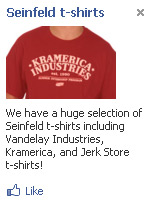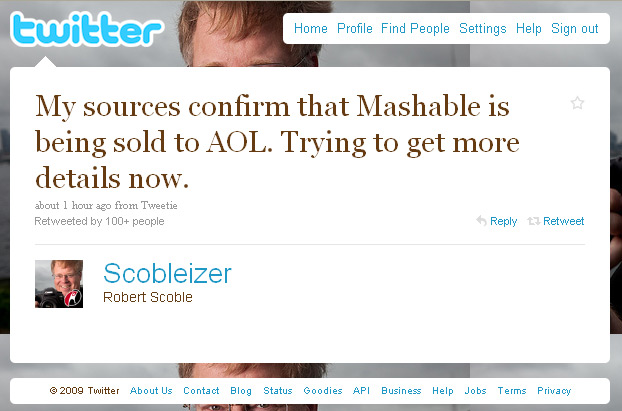Facebook is infiltrating sites all over the web. These sites are happy to add Facebook’s social plug-ins. What if Facebook launched an AdSense-like product – a product that lets publishers stick relevant ads from Facebook on their sites for a cut of the money? They would be HIGHLY, HIGHLY targeted because the more sites that use plugins like Facebook’s like button, the more users will share their likes with Facebook, which goes to the profile, which is where Facebook already draws its information from to serve its own ads today.
Should Google be worried? Share your thoughts.
These ads are already pretty well targeted, when the user has enough information in their profile. Social plugins like the like button will only facilitate the population of such information in the profile.
 Apparently Mashable founder Pete Cashmore has a similar view on this, as he says in an article for CNN, "Google makes the vast majority of its money from ads — these ads typically match your search terms, or the content of the Web page you’re viewing. Google has certainly worked to personalize these ads, but its knowledge of your friends and interests is more limited than Facebook’s. The data gleaned from thousands of Facebook Like buttons around the web could make for an ad network that rivals Google’s AdSense."
Apparently Mashable founder Pete Cashmore has a similar view on this, as he says in an article for CNN, "Google makes the vast majority of its money from ads — these ads typically match your search terms, or the content of the Web page you’re viewing. Google has certainly worked to personalize these ads, but its knowledge of your friends and interests is more limited than Facebook’s. The data gleaned from thousands of Facebook Like buttons around the web could make for an ad network that rivals Google’s AdSense."
Ian Schafer at AdAge has also contemplated such a scenario. "It seems to be an inevitability that all of this intelligence will one day be applied to power a socially targeted ad network as big (or bigger than) Google’s AdSense," he says. "It would be a network that would theoretically deliver even better results for advertisers, resulting in higher CPMs/CPCs/CP-whatevers that can deliver higher payouts to publishers, making a choice between the two platforms a not-too-difficult one for those publishers."
The Like button is a game changer because all of a sudden you have the whole world wide web of content to "like" not just what’s within your immediate network within Facebook and what you may have taken the time to add to your profile two years ago. It keeps user interests current and enables an infinite amount of interest indication that advertisers would salivate for.
If Facebook were to launch an AdSense-like product, that doesn’t necessarily mean Google would completely lose out. I can certainly see a lot of sites going forward with both. When pressed to make a choice between the two, however, it could make things interesting for the industry at large.
Would you serve AdSense ads or Facebook ads on your site if such a scenario were to come to fruition? Let us know.

